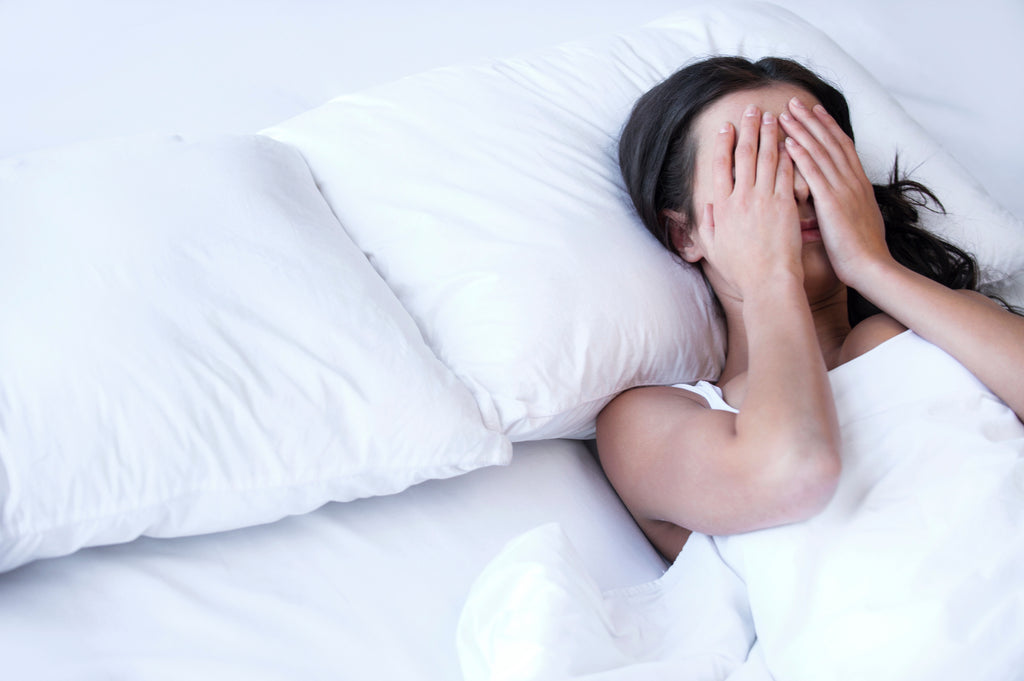
We are all a year older and, hopefully, a year wiser. While we are getting stuck into our busy routines this year – we thought we’d examine the importance of sleep and what it means for the health of our skin.
We hear phrases like ‘to sleep like a baby’, or to make sure you get enough ‘beauty sleep’. But is there any truth behind these sayings?
In this article, we examine the relationship between sleep and your skin’s health and suggest a few tips as to how a better night’s sleep can result in a more youthful appearance.
Research shows people deprived of sleep are rated as less healthy and less attractive by others. Chronic poor sleep quality is associated with increased signs of intrinsic aging, diminished skin barrier function and lower personal satisfaction with appearance, according to a study of 60 healthy women published in the Journal of Clinical and Experimental Dermatology. So, why exactly does lack of sleep affect our skin?
Sleep and Stress
It turns out that cortisol, a key hormone responsible for regulating stress, is higher in people who are sleep-deprived. Stress itself is an underlying factor responsible for premature aging. (See this review on the relationship between stress and the skin, if you are technically inclined).
Higher levels of cortisol cause inflammation and break down collagen, the protein that keeps your skin supple and youthful in appearance. Lack of sleep may also affect the water balance in our bodies, which can manifest itself as puffy ‘panda’ eyes.

Above: Does Sleep Affect How Much You Age? These photos of American presidents before and after the job, show how lack of sleep can take its toll.
Lack of sleep can make your existing skin condition worse!
People with existing skin conditions should take note. According to the Journal of Clinical Dermatology, inflammatory skin disorders are aggravated in patients who are sleep deprived. In conditions like atopic dermatitis or eczema, a vicious cycle can result from lack of sleep, which can lead to scratching through the night.
| Sleep Trivia: 1) Are we sleeping less than previous generations? 2) How does the requirement for sleep vary as we get older? 3) Does sleeping longer makes us live longer? 4) Which country sleeps the most 5) Which country sleeps the least? 6) How does gender affect sleep? Click Here to Read the Answers. |
So, will getting more sleep help you look younger?
Evidence suggests that the answer is ‘yes’. Of course, the sooner you start the better. It’s important to be in the right state-of mind when heading off to bed. Here are some tips on good ‘sleep hygiene’ for a restful night of ‘shut-eye’:
1. Keep electronics out of the bedroom
It's important to associate your bed with sleep instead of wakefulness. Restricting the use of mobile phone and creating a ‘device-free zone’ in your bedroom can help re-programme your brain to relax.
2. Block out 'blue light'
Avoid looking at bright screens two to three hours before heading to bed, and use a 'blue light' filter on your phone. Studies show that blue light can negatively impact circadian ‘day-night’ rhythms, and may lead to a host of diseases including cancer, diabetes, heart disease, and obesity. Read “Blue light has a dark side” Harvard Health Letter, Harvard Medical School
3. Have a night-time wind-down routine
Take a bath, drink herbal tea (Rooibos or Chamomile are good caffeine-free options), do some light bedtime reading, or meditation to relax your mind.
4. Keep your skin moisturised before you go to sleep
After gently cleaning your skin to remove any grime and dead skin cells, using a night-time serum can help return moisture to your skin and provide nutrients and anti-oxidants to your cells to help with the recovery process.
5. Drink plenty of water throughout the day - but not too late at night. Here's an article we wrote about the importance of water for the skin.
6. Sleep under a warm blanket, in a cool, dark, quiet room.
7. Use breathable cotton sheets, and wash them regularly, so they don't collect dust mites and bacteria. Try using a dust mite-proof nanofibre pillow slip to banish dust-mites from your pillow.
8. Use laundry detergents that don't have strong fragrances, to avoid irritating the skin. Here’s a link to a sustainable 100% detergent-free laundry product from Japan which is good for the environment, as well as sensitive skin.
How much sleep should I be getting?
A range of factors including - genetics, diet and lifestyle (sun exposure, etc.) all affect how we age. Individual requirements for sleep differ considerably, but are found to decrease as we get older (See this table by the US National Sleep Foundation "Sleep Duration Recommendations").
Regardless of your background – getting more sleep is sure to benefit not only your appearance, but increase your mental clarity, and energy levels as well. Why don’t you try the above tips and see if you notice a difference?

